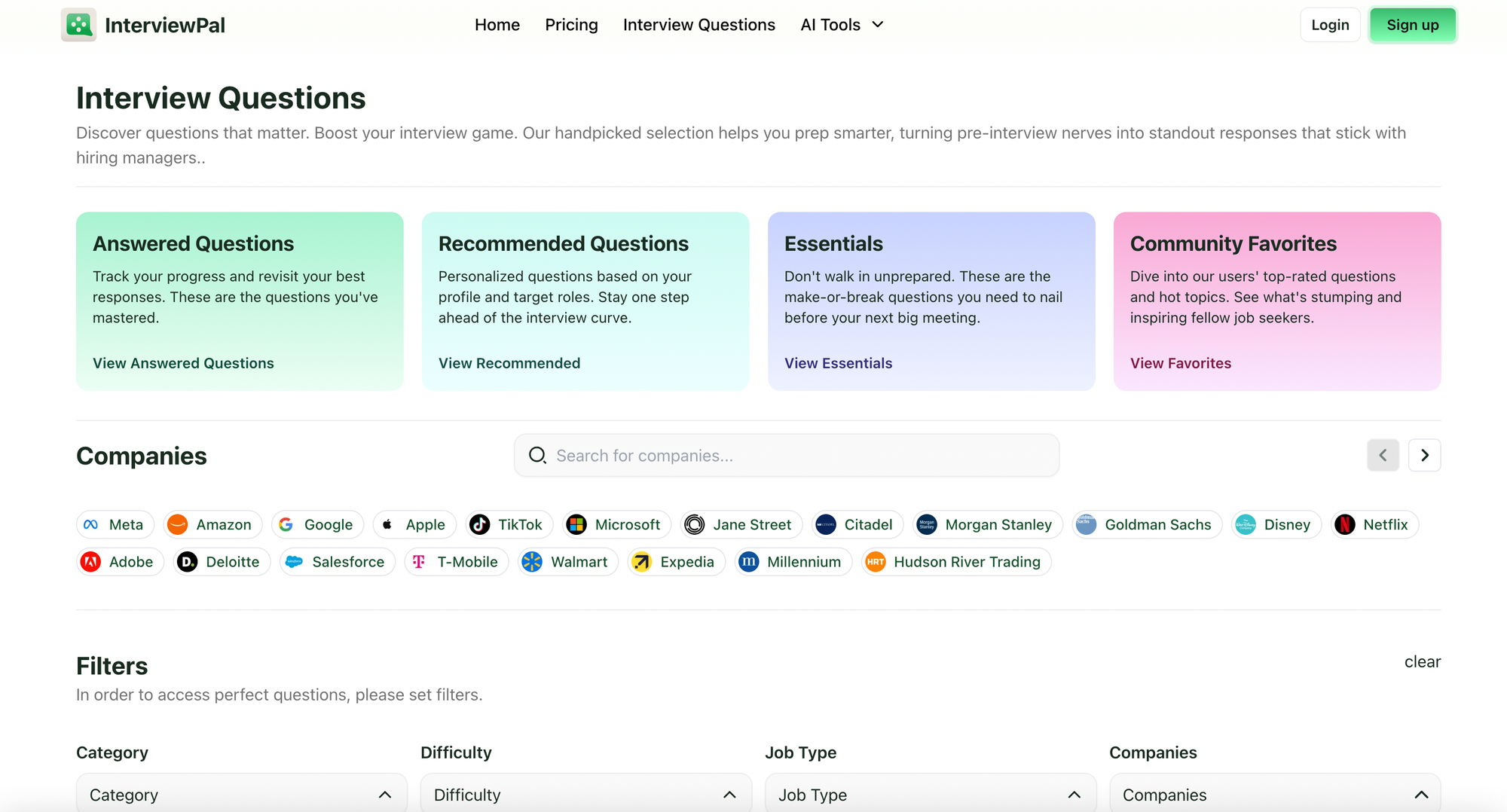Ask a hundred candidates about their work ethic, and ninety-nine will say "I'm hardworking." Then watch most interviewers mentally check out. Here's what they're actually looking for, and why this seemingly basic question trips up even the most qualified candidates.
After conducting a lot of interviews and analyzing thousands more through InterviewPal's platform, I've noticed a pattern: the candidates who nail this question aren't the ones who list the most impressive accomplishments. They're the ones who show their work ethic through specific stories that resonate with their industry.
What's The Sauce for "Describe Your Work Ethic" Interview Question? I'd Say, It's Role-Specific Work Ethic
Let's break down what work ethic really means across different roles, with examples that actually land in interviews:
For Software Engineers: Your work ethic isn't about pulling all-nighters to fix bugs. It's about demonstrating how you balance code quality with deadlines, how you approach technical debt, and your commitment to continuous learning.
Winning Example: "My work ethic is built around sustainable excellence. For instance, when we faced a critical production issue last quarter, instead of just rushing to patch it, I spent the first hour documenting the problem and creating a test suite. We fixed the bug in the next two hours, but more importantly, prevented similar issues from recurring. That's how I view work ethic – not just solving problems, but building systems that prevent them."
For Product Managers: Work ethic here means balancing multiple stakeholders, staying data-informed, and maintaining user empathy even under pressure.
Strong Response: "I structure my work ethic around impact and accountability. When launching our last feature, I noticed our user research was becoming superficial due to tight deadlines. Instead of cutting corners, I developed a rapid research protocol that cut our interview time by 60% while maintaining depth. That's my work ethic – finding creative ways to maintain quality when resources are tight."
For Marketing Professionals: Your work ethic should showcase your blend of creativity and metrics-driven decision making. Read more: How to Answer: “Give an Example of Going Above and Beyond for a Customer”
Effective Answer: "My work ethic centers on continuous optimization. During our last campaign, I didn't just set it and forget it. I committed to checking performance metrics three times daily, A/B testing headlines weekly, and adjusting budgets based on real-time data. This approach increased our ROI by 40% compared to previous campaigns."
For Sales Roles: Work ethic here isn't just about hitting numbers – it's about building sustainable relationships and maintaining high ethical standards.
Strong Answer: "I build my work ethic around long-term trust. Last quarter, I discovered a client could actually save money with a smaller package than what they initially wanted. I recommended the cheaper option, losing about $10K in commission. That client has since referred three major accounts to us. That's my definition of work ethic – doing right by the client, even when it costs you short-term."
For Operations Roles: Your work ethic should demonstrate your ability to maintain excellence in routine tasks while continuously improving processes.
Strong Response: "My work ethic revolves around systematic improvement. When I took over our inventory management, I didn't just maintain the existing system. I spent my lunch breaks learning Python, built a basic automation tool, and reduced our processing time by 30%. That's how I approach work – not just doing the job, but constantly finding ways to do it better."
What Should You Avoid?
- The Martyr Trap: Avoid glorifying overwork. Stories about 70-hour weeks often backfire, suggesting poor time management rather than strong work ethic.
- The Vague Value Statement: "I always give 110%" tells the interviewer nothing. Instead, show your work ethic through specific examples.
- The Irrelevant Excellence: Your perfect attendance record from college isn't relevant. Focus on recent, role-specific examples.

The Framework That Works
Here's a bulletproof structure for answering this question:
- Define your work ethic philosophy in one sentence
- Share a specific, recent example
- Connect it to measurable results
- Link it to the role you're interviewing for
Advanced Strategies
The best candidates don't just answer this question – they use it to highlight their unique value proposition. Here's how:
For Technical Roles: Emphasize your commitment to code quality and continuous learning while acknowledging business constraints.
For Leadership Positions: Focus on how your work ethic influences team performance and culture.
For Creative Roles: Showcase how you balance creativity with consistency and deadlines.
For Customer-Facing Positions: Highlight your commitment to relationship building and problem-solving.
Real-World Practice Makes Perfect
Here's where tools like ours become invaluable. Our interview database question bank includes thousands of real responses to this question, categorized by role and company. You can see how successful candidates framed their answers and get AI-powered feedback on your own responses.
What's particularly powerful is our company-specific question banks. The way you should discuss work ethic at a fast-paced startup differs significantly from how you'd frame it at an established enterprise. InterviewPal's platform helps you calibrate your response to your specific target company.
Remember, the "describe your work ethic" question isn't really about work ethic – it's about demonstrating that you understand what excellence looks like in your specific role and industry. Through InterviewPal's practice platform, you can refine your answer until it perfectly balances authenticity with impact.
Your work ethic story should leave the interviewer thinking not just "this person works hard," but "this person gets what it takes to succeed in this role."
Ready to nail this and other crucial interview questions? Check out InterviewPal's extensive question bank and start practicing with real-world scenarios today. Because in interviews, it's not just what you say – it's how you say it.



